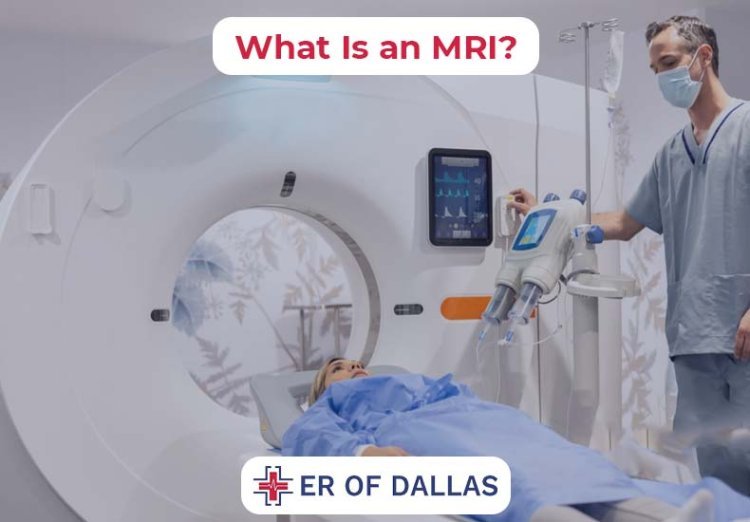7 Surprising Reasons Why You Feel Drained After an MRI with Contrast
Discover the surprising reasons behind post-MRI fatigue. Learn why you might feel drained after an MRI with contrast and how to recover quickly. Trusted advice from Er of Dallas.

Magnetic Resonance Imaging (MRI) is a powerful diagnostic tool used to capture detailed images of your body's internal structures. When a contrast dye is used, it enhances the clarity of these images, providing critical information to healthcare professionals. However, many people report feeling unusually tired or drained after undergoing this procedure.
In this article, we will explore why do I feel drained after an MRI with contrast, the potential causes behind this fatigue, and practical tips to recover quickly. This comprehensive guide will help you understand the effects of MRI with contrast on your body and when to seek medical advice.
Understanding MRI with Contrast
An MRI with contrast involves the injection of a contrast agent, typically gadolinium-based, into your bloodstream. This dye improves the visibility of blood vessels, tissues, and organs in the MRI images, allowing for more accurate diagnoses.
While the procedure is generally safe, some individuals experience side effects, including fatigue, dizziness, or nausea. But why does this happen?
1. The Body's Reaction to Contrast Agents
Contrast agents, especially gadolinium-based ones, can cause mild reactions in some people. These reactions might include:
-
Mild Fatigue: Your body works to process and eliminate the contrast dye, which can be taxing.
-
Immune Response: Some people may have a mild immune reaction, leading to feelings of tiredness.
How to Manage:
-
Stay hydrated to help your body flush out the contrast agent.
-
Get plenty of rest post-procedure.
2. Stress and Anxiety Before the MRI
An MRI can be a stressful experience, especially if you’re claustrophobic or anxious about the results. Stress and anxiety can cause physical exhaustion.
Stress-Related Symptoms Include:
-
Muscle tension
-
Increased heart rate
-
Mental fatigue
How to Manage:
-
Practice deep breathing or meditation before your appointment.
-
Talk to your doctor about sedatives if you have severe anxiety.
3. Dehydration
Contrast dyes can have a dehydrating effect on the body. If you were asked to fast before the MRI, you might already be slightly dehydrated.
Signs of Dehydration:
-
Dry mouth
-
Dizziness
-
Fatigue
How to Manage:
-
Drink plenty of water before and after the procedure.
-
Avoid caffeinated beverages, which can worsen dehydration.
4. Fasting Before the MRI
Many MRI procedures require fasting, especially if contrast is used. Fasting can lead to low blood sugar, causing fatigue, dizziness, and weakness.
How to Manage:
-
Eat a balanced meal rich in protein and complex carbohydrates after your MRI.
-
Carry a healthy snack to eat immediately after the procedure if allowed.
5. Lying Still for Extended Periods
MRI scans often require you to lie still in an uncomfortable position for an extended period. This can cause muscle stiffness, poor circulation, and overall fatigue.
How to Manage:
-
Stretch and move around after the procedure to improve circulation.
-
Consider gentle exercises like walking to re-energize.
6. Contrast Dye Side Effects
While rare, some people experience side effects from contrast dye, including:
-
Headache
-
Nausea
-
Mild allergic reactions (rash, itching)
-
Fatigue
Serious Reactions (Seek Immediate Medical Attention):
-
Difficulty breathing
-
Swelling of the face or throat
-
Severe rash or hives
How to Manage:
-
Inform your doctor if you experience severe or unusual symptoms.
-
Follow post-procedure instructions carefully.
7. Underlying Medical Conditions
Fatigue after an MRI with contrast could be related to your underlying health condition rather than the MRI itself. Conditions like anemia, thyroid disorders, or chronic illnesses can contribute to post-procedure tiredness.
How to Manage:
-
Discuss persistent fatigue with your healthcare provider.
-
Monitor your symptoms and report any changes.
When to Seek Medical Advice
While mild fatigue is common, you should contact your doctor if you experience:
-
Severe dizziness or fainting
-
Shortness of breath
-
Chest pain
-
Confusion or disorientation
These could be signs of a serious reaction or an unrelated medical emergency.
Tips for a Quick Recovery
-
Hydrate: Drink plenty of water to help flush out the contrast dye.
-
Rest: Allow your body time to recover, especially if you feel unusually tired.
-
Eat Well: A nutritious meal can help restore energy levels.
-
Gentle Exercise: Light activity like walking can improve circulation.
-
Monitor Symptoms: Keep track of how you feel and report any concerning changes to your doctor.
FAQs About Feeling Drained After an MRI with Contrast
Q1: Is it normal to feel tired after an MRI with contrast?
Yes, mild fatigue is common due to the body’s response to contrast dye, stress, or fasting.
Q2: How long does fatigue last after an MRI with contrast?
Most people recover within 24-48 hours. If fatigue persists, consult your doctor.
Q3: Can contrast dye cause long-term side effects?
Serious long-term side effects are rare. However, individuals with kidney issues should discuss risks with their doctor.
Q4: What should I do if I feel dizzy after an MRI with contrast?
Sit or lie down until the dizziness passes. If it’s severe or accompanied by other symptoms, seek medical attention.
Q5: Should I be concerned about feeling weak after the procedure?
Mild weakness can occur, but if it’s severe or accompanied by other symptoms like chest pain or difficulty breathing, seek immediate medical care.
Final Thoughts
Feeling drained after an MRI with contrast is usually temporary and manageable with rest, hydration, and proper nutrition. However, always listen to your body. If something feels off, it’s better to be safe and consult your healthcare provider.
For any health concerns or emergencies in the Dallas area, Er of Dallas is here to provide expert care and support whenever you need it.
What's Your Reaction?















